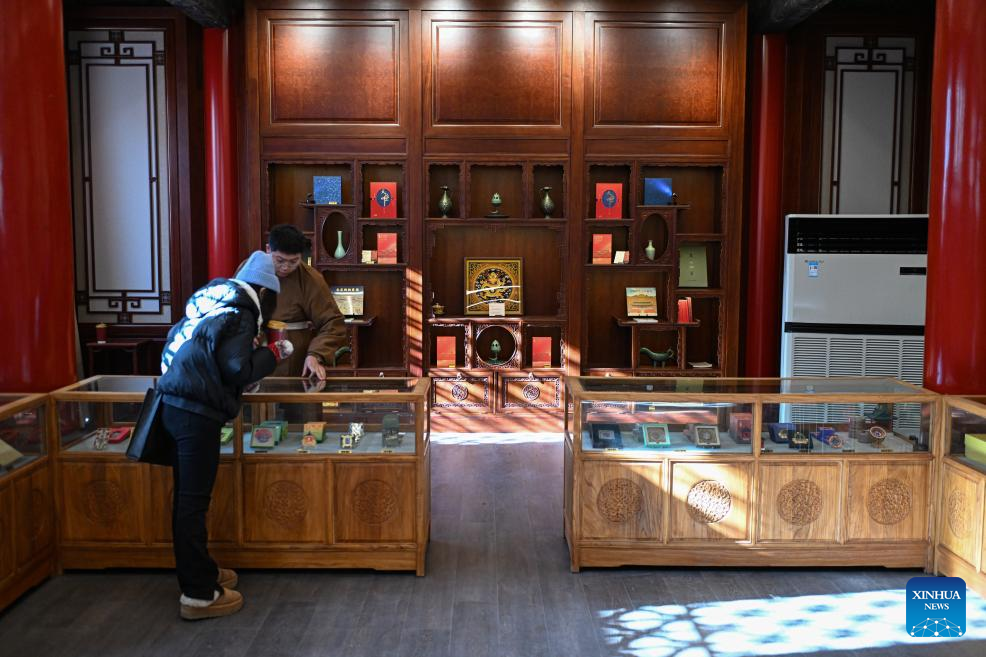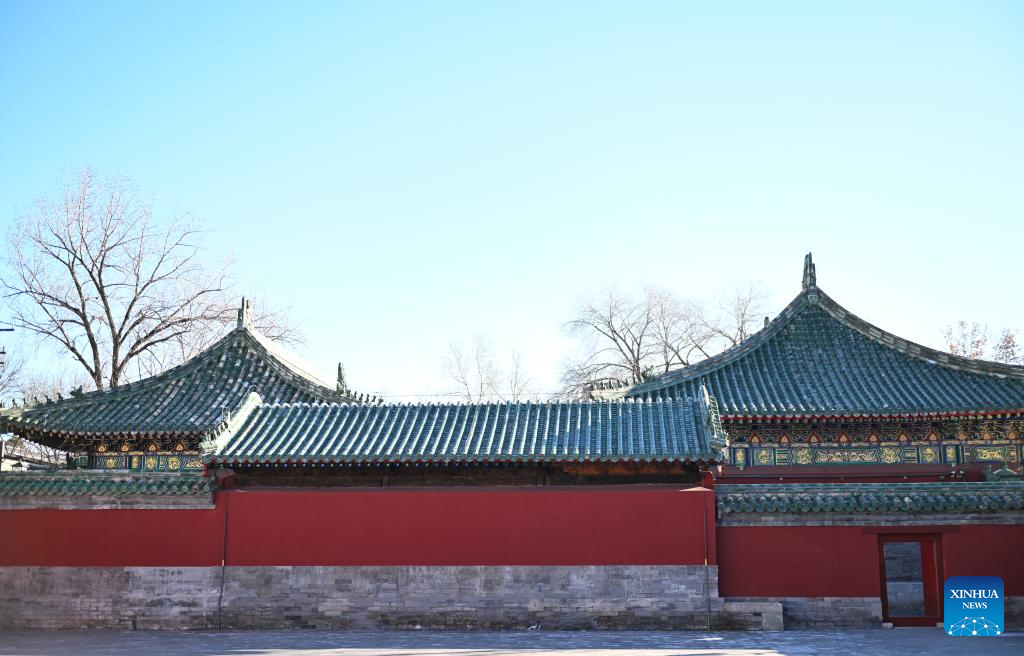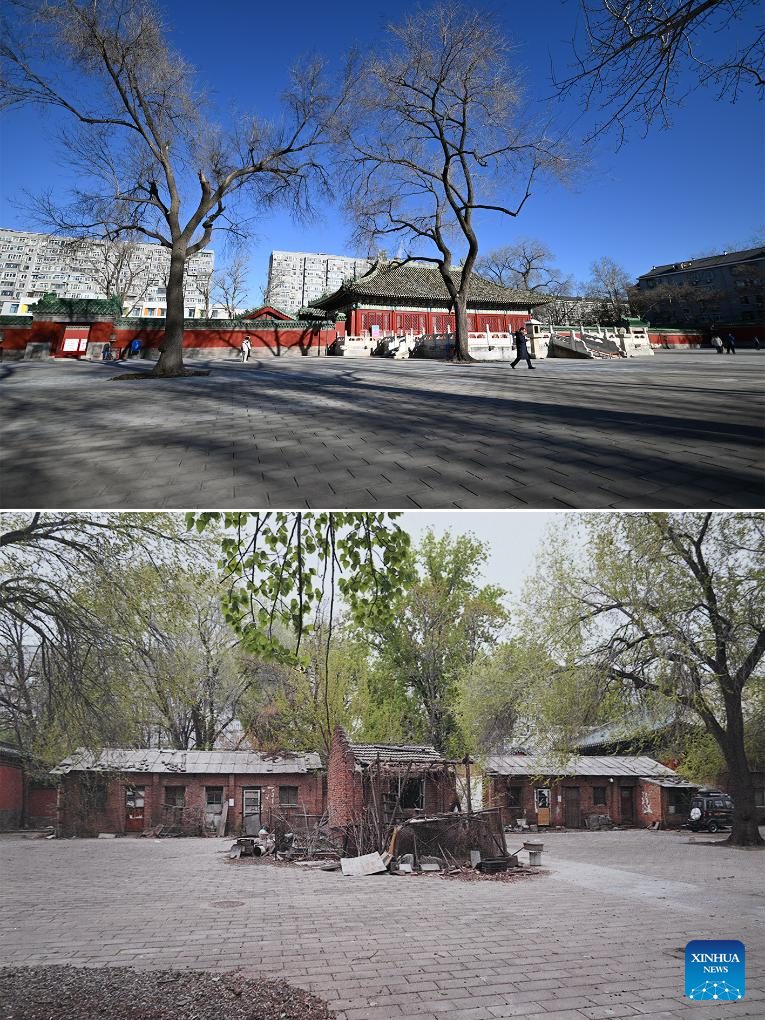
A tourist shops for cultural and creative products in the Qingcheng Palace complex in Beijing, capital of China, Dec. 21, 2024. The Qingcheng Palace complex, a royal sacrificial venue along the historic central axis of Beijing, opened to the public after restoration work on Saturday. (Xinhua/Chen Zhonghao)
Built in the Ming Dynasty (1368-1644), the palace is located inside the Altar of the God of Agriculture, also referred to as the Xiannongtan Temple. The palace was formerly known as Zhaigong, which literally translates to the fasting palace. It was a place where the emperors abstained from heavy meals and meditated before worship.
It was renamed as Qingcheng Palace in the Qing Dynasty (1644-1911), becoming a place where the emperors held celebratory rituals after cultivation ceremonies while praying for a good harvest.
Restoration work of the ancient buildings started in June last year, following the principle of "minimal intervention."

This photo shows a view in the Qingcheng Palace complex in Beijing, capital of China, Dec. 21, 2024. (Xinhua/Chen Zhonghao)
This combo photo taken on Dec. 21, 2024 shows the same area of the Qingcheng Palace complex before (bottom, rephotographed file photo) and after restoration in Beijing, capital of China. (Xinhua/Chen Zhonghao)

A photo exhibition on Beijing Central Axis is held in the Qingcheng Palace complex in Beijing, capital of China, Dec. 21, 2024. (Xinhua/Chen Zhonghao)
 Editor:Li Lulu
Editor:Li Lulu